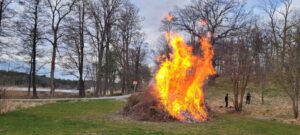Seething since 2000*
Interview with Paul Hardacre
This one seemed to slip under the radar at the time, but for the sake of archiving and posterity, I’ve reproduced here an interview Paul Hardacre conducted with me a month ago for papertiger’s TIGER TALK e-newsletter, on the subject of my forthcoming book. By the way, did you know that you can now pre-order a copy of We Will Disappear at papertiger’s secure online store? Untold!
Paul Hardacre: Describe We Will Disappear, in your own words.
David Prater: We Will Disappear represents one person’s attempt at making sense of mortality and the essential questions of life and existence: the mysteries of birth, landscapes of loneliness and solitude, the inevitably political nature of our human interactions, the seeming pointlessness of death and passing, imaginary constructs of the mind and the transformative power of language in a strange and fast-disappearing world. The poems in the collection are also funny, sarcastic, inventive and playful. You’ll find references to various pop cultural icons including Punky Brewster, Justine Bateman, James Mason, Woody Harrelson, Tintin and Mohammed Ali, as well as various bands including Tortoise, Pavement, Sonic Youth, Slowdive, Bjork and AC/DC.
PH: How long did We Will Disappear take to write/put together? Does the collection embody any particular time period or place?
DP: The poems collected here were conceived over the period of ten years. The collection embodies several significant time periods and places, from its late twentieth century beginnings to more recent times. The collection is necessarily informed by an equal if not greater number of poems not contained within it. This of course relates to the need for careful selection when putting together a book of poetry, a requirement expressed in the book’s opening poem or ‘envoi’, with its nod to ‘the classics’ – the implication here being that the poems contained in We Will Disappear constitute the ‘classic’ poems from a well-defined period of time. A good number of these poems were written while travelling in Asia, the United States and Europe, while some of the more significant elegiac pieces contained within the collection were written in response to Australian writers and writings. If I had to name significant time periods they would include for starters the late 1990s, when the title poem and several of the more elegiac pieces were written; it was at this time that I first travelled overseas, to Thailand and Laos and experienced the world as a tourist (or ‘farang’ in Thai); much of my writing is therefore written from the point of view of the stranger, or outsider; it is from this perspective that I reflect upon the chaos and destruction wrought by Western ’empires’ in the name of their own self-perpetuating philosophies, particularly in relation to war and terror. Leading on from this, another significant period of writing was from roughly 2002-2004, in the ‘post 9-11’ world, during which my central preoccupations became more explicit. In hindsight it’s no coincidence that I travelled to places like New York, Berlin, Hiroshima, and Ho Chi Minh City during this time, as my writing and thinking during these trips was focused on making sense of the atrocities and horrors that have come to be associated with such places. As an Australian, I am aware of the naivety of the position that these events are ‘distant’ from us, or have already disappeared into history – the fact is that as a human being I am inextricably linked to the workings of global politics and power. This is not to say that my writing is purely international in flavour – as I try to say in my poem ‘Ken’ (one of the oldest poems in the book), one of the great ironies of globalisation is that it creates situations where international concerns are played out in a postmodern way in domestic (i.e. Australian) settings. Perhaps the third and most significant period of writing represented in this book is therefore 2005-2006 when I was lucky enough to receive a New Work Grant from the Australia Council for the Arts, and was able to complete some more thematic poems to round off the collection. These poems can be characterised by a perhaps greater sense of urgency and anger, although the two poems that ‘bookend’ the collection – ‘Abstract Moon’ and ‘We Are Living’ – do contain a more gentle sense of acceptance and hope. Above all, the poems are informed by the knowledge that human life is short and complicated, and they therefore constitute an attempt to write these truths in my own language, a language informed by the realities of 21st century life, as well as the passing of close friends and family, famous and not so famous poets, even animals and ideas. The poems are ultimately aware of their own transience, in an imaginary sense. The poems will disappear. We will disappear.
PH: Although you seem to have been writing and publishing poetry for ages, We Will Disappear is your first full-length poetry collection. Are you excited at the prospect?
DP: The publication of a book of one’s own poems is of course an occasion for excitement and fulfilment, and it has indeed been a long time coming. I do believe that taking my time and being sure of the book’s contents has ultimately been beneficial for my work, and should I live long enough to be able to look back on this book from the warm and fuzzy perspective of my old age, I trust and hope that I will still be proud of what it attempts to communicate. Publication is also a nerve-wracking experience, I guess, mostly because it’s the ultimate way to put one’s thoughts on the line – standing naked before the world and saying ‘We’re all going to die’ is not something I usually consider at the start of each day. Nevertheless, as a poet and a member of my community, I do think of the book as a more truthful and honest way of expressing myself. I am terrified at the thought of people reading this book; and it’s this terror that keeps me writing and trying to be as honest as I can – because in the end I will be judged by what I have written and the way in which I have written it. Let’s face it, I can’t wait. I’m impatient for this book to be in the world and to begin its inexorable march towards disappearance.
PH: Now for the wanky general interest question – which poet, living or dead, do you most admire, and why? Has this poet and his/her oeuvre influenced your writing of We Will Disappear?
DP: I’m aware of the danger of unfairly or inaccurately appropriating a person’s life and work by claiming them as an influence upon my own. This being said, as a past student of Australian literature, I would hope that the spirits of the great Australian writers have profoundly influenced my own understanding of language and writing, and the incredible power of poetry to express what can’t be said in a pop song or reality tv show. I have been overpowered and moved to write by the works of Oodgeroo Noonuccal, Lionel Fogarty, Judith Wright, Kenneth Slessor, Francis Webb, js harry, John Tranter, John Forbes, Jill Jones, Michael Dransfield, Jennifer Maiden, and so many others. Writing these names in no way suggests an affiliation or connection on these writers’ parts; nor does it imply a comparison with my own modest efforts. I am also profoundly influenced by the poets living, working and breathing alongside me – Adrian Wiggins, alicia sometimes, Sean M Whelan, Michael Farrell, Paul Mitchell, Keiji Minato, Andy Jackson – I’ll stop now in case someone gets upset that I haven’t mentioned them. They all know who they are, and I know the effect that their encouragement and bravery has had on my own work. In the end, though, if I had to name a poet whose spirit haunts this collection, it would be Bruce Beaver, for whom the poem ‘(On the Tomb of) Victor Bruce’ was written, shortly after his death. I was fortunate to meet Bruce in the early 1990s when I was writing my Honours thesis on his work in relation to that of Rainer Maria Rilke, and I can’t stress enough how much of an impact that meeting, and his astonishing ouvre of poetry, has had on my poetic development. He was an everyday god, and his passing is a great loss. He was also, however, ultimately aware of the transience of all things and of the inextricable link between what Rilke referred to as celebration and lamentation – two words that, I hope, sum up what I am trying to do with my poems in the all-too-brief time I have left in which to write them.



what, i won’t be finding your book on the shelves of my local angus & robertson? oh wait… that’s right… books n stuff…